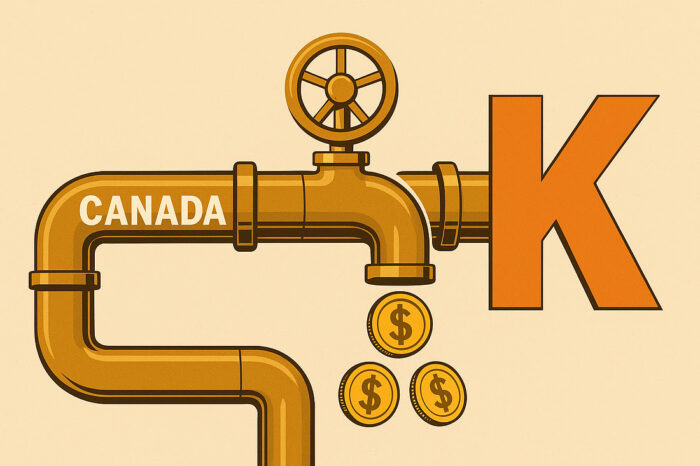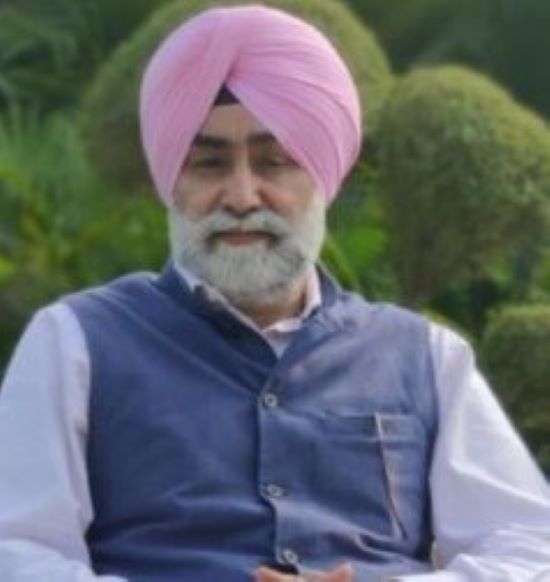 Canada has finally admitted what India has warned about for years. In its latest national assessment of money-laundering and terrorist-financing risks, Ottawa’s own review shows that Khalistani extremist groups are receiving financial support inside Canada — the same report names outfits long linked to violence and political extremism. This is not a rumour or a diplomatic talking point: it is Canada’s official finding, and it must be treated as an emergency, not an inconvenience.
Canada has finally admitted what India has warned about for years. In its latest national assessment of money-laundering and terrorist-financing risks, Ottawa’s own review shows that Khalistani extremist groups are receiving financial support inside Canada — the same report names outfits long linked to violence and political extremism. This is not a rumour or a diplomatic talking point: it is Canada’s official finding, and it must be treated as an emergency, not an inconvenience.
https://www.indiatoday.in/india/story/khalistani-extremist-funding-canada-finance-report-2025-justin-trudeau-mark-carney-2782901-2025-09-06
Money is the oxygen of modern extremism. When extremist networks get funds, they can: (1) amplify anti-India propaganda via rallies, events and online campaigns, (2) radicalise young people by glorifying killers and vigilantes, and (3) quietly bankroll criminal activity — drugs, extortion and gang work — while hiding behind a veneer of “political activism and freedom of speech.”
The finance report shows those pipelines exist; the consequences are predictable.
This should not have come as a total surprise. Canada’s spy agency earlier acknowledged that a small number of Khalistani extremists have used Canadian freedoms to raise funds, promote violent ideas and plan activity that targets India — a sober admission that ought to have led to immediate, decisive domestic action. Instead, warning signs have multiplied: a self-styled “Embassy of the Republic of Khalistan” was set up inside a Surrey gurdwara in August, openly celebrating a slain extremist and giving a symbolic base to those who want to normalise separatism.
There is a very ugly, practical side to this story. British Columbia’s Lower Mainland is already struggling with gang wars, extortion and a rash of targeted violence — problems that police and provincial leaders admit are linked to transnational criminal networks and to money flowing across borders. When separatist narratives and criminal enterprise mix — when ideology becomes a cover for profiteering — communities pay the price in fear and blood. Local leaders have even urged Ottawa to consider tougher designations for violent gangs involved in extortion and murder.

Is former Member of Punjab Public Service Commission
A farmer and keen observer of current affairs
We must also remember why this matters for both countries. Canada’s history includes the Kanishka tragedy of 1985 — the Air India Flight 182 bombing that killed 329 people — a catastrophe born in part from extremist plotting conducted on Canadian soil. That horror should have been a permanent lesson: denial and delay in the face of home-grown extremism are deadly. Today’s financial findings are a fresh alarm bell.
So what should be done? Quick list, plain language: dismantle overt provocations like the fake “embassy”; audit charities, gurdwara finances and money-service businesses linked to extremist funding; tighten reporting and enforcement on crypto and cross-border transfers; expand Canada-India intelligence cooperation (clearly focused on law enforcement and community safety); and pour resources into local community programs to inoculate youth against radical narratives.
This is not just India’s problem. If Ottawa keeps treating extremism as a diplomatic nuisance, Canadians will pay the cost — in fractured communities, rising violence, and a tarnished global reputation. Financial muscle makes extremists bolder. The longer Canada indulges them, the closer that blowback will be — and it will land in Canadian streets first.
A quick, bitter laugh before I sign off: once famous for maple syrup and polite smiles, Canada is now experimenting with a new policing strategy — “Leave your car keys on the porch, sahib; otherwise, the gang might shoot through the door.” If that’s the plan, perhaps somebody should send a few veteran Punjabi chowkidars for a crash course in basic deterrence. Until then, Canada can keep calling itself a liberal haven — but if it does not act fast, it’ll be fighting the fires it helped fuel.